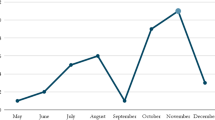Abstract
THE old danger arising from the haphazard application of a name surrounds the public institutions which are called “museums.” By a perversion of its ancient signification, the word “museums” is now used to designate a collection of natural history specimens, pictures, antiquities, machinery, waxwork or other articles (rarely libraries), as well as the building where it is exhibited to the public either with or without charge for admission. There are various so-called “museums” supported by public funds, either national or municipal. The proposal to create a new body of Government clerks (or to aggrandise an existing one) on the pretence that museums form a “genus” which all alike require central control of one and the same “tape and sealing-wax” type, and that the well-known ignorant, and therefore impartial, Civil Servant is to have new fields of plunder thrown open to him— as “administrator”—is not surprising. We are familiar with such schemes, but, none the less, this is one that all serious lovers of science and of art should resist to the uttermost! What is needed in regard to our existing nationaland other public museums is not the creation of highlv paid postsfor otherwise unemployable “administrators,” but definite legislation after inquiry and report by a Royal Commission as to the specific purpose, scope, and method of work to be followed in each of those great museums which in this country receive support from public funds. “Overlapping” of collections and neglect of this and that department couldbe at once prevented by assigning to each museum its proper function and by making its income depend upon its doing what it is intended that it shall do. No central salaried body, no “committees” of delegates, trustees, or members of governing bodies are required. They certainly would prove incapable and obstructive, as such ”committees” have generally shown themselves to be.
This is a preview of subscription content, access via your institution
Access options
Subscribe to this journal
Receive 51 print issues and online access
$199.00 per year
only $3.90 per issue
Buy this article
- Purchase on Springer Link
- Instant access to full article PDF
Prices may be subject to local taxes which are calculated during checkout
Similar content being viewed by others
Rights and permissions
About this article
Cite this article
LANKESTER, E. Museums and the State. Nature 105, 100–101 (1920). https://doi.org/10.1038/105100d0
Issue Date:
DOI: https://doi.org/10.1038/105100d0
Comments
By submitting a comment you agree to abide by our Terms and Community Guidelines. If you find something abusive or that does not comply with our terms or guidelines please flag it as inappropriate.



